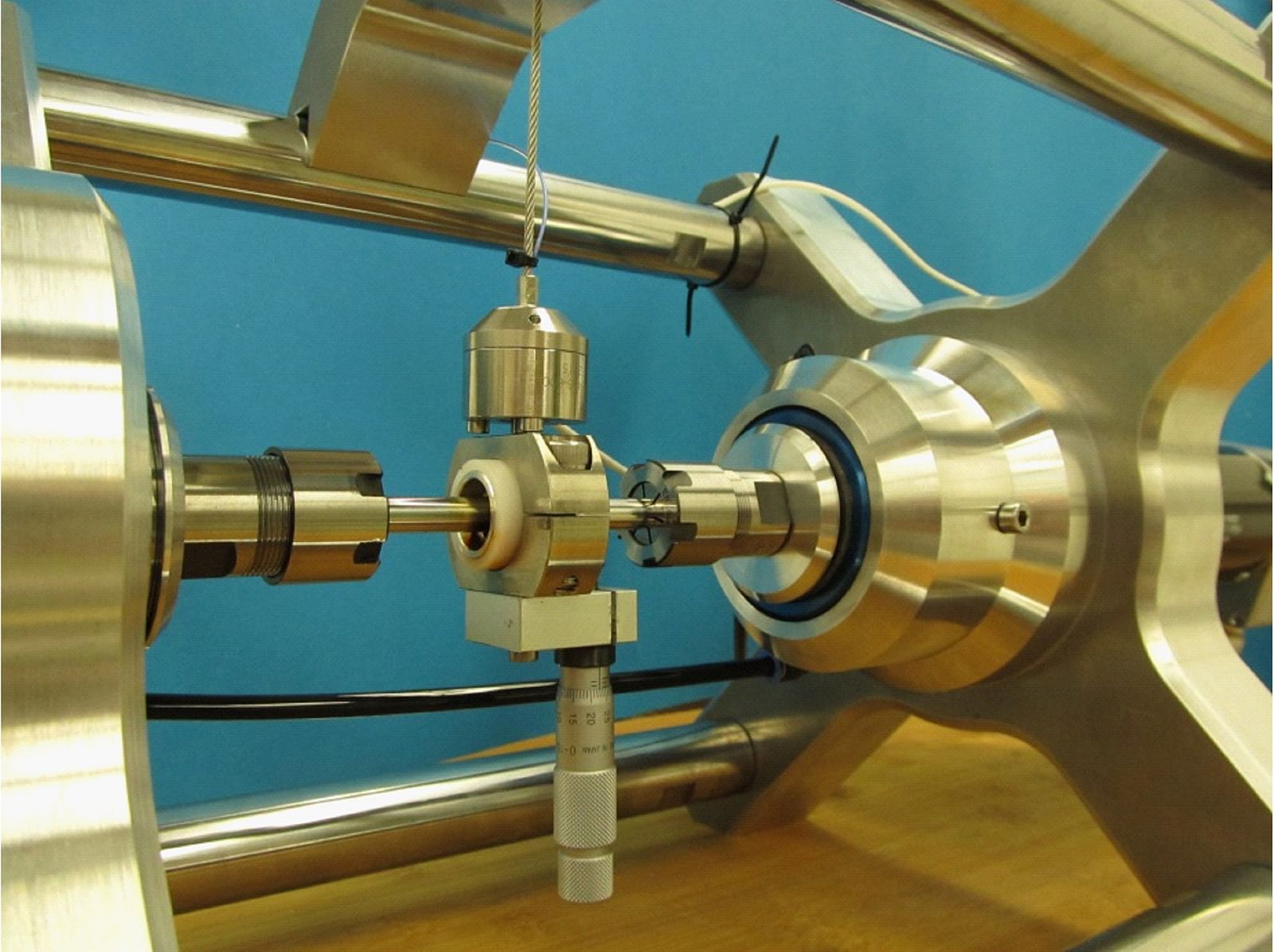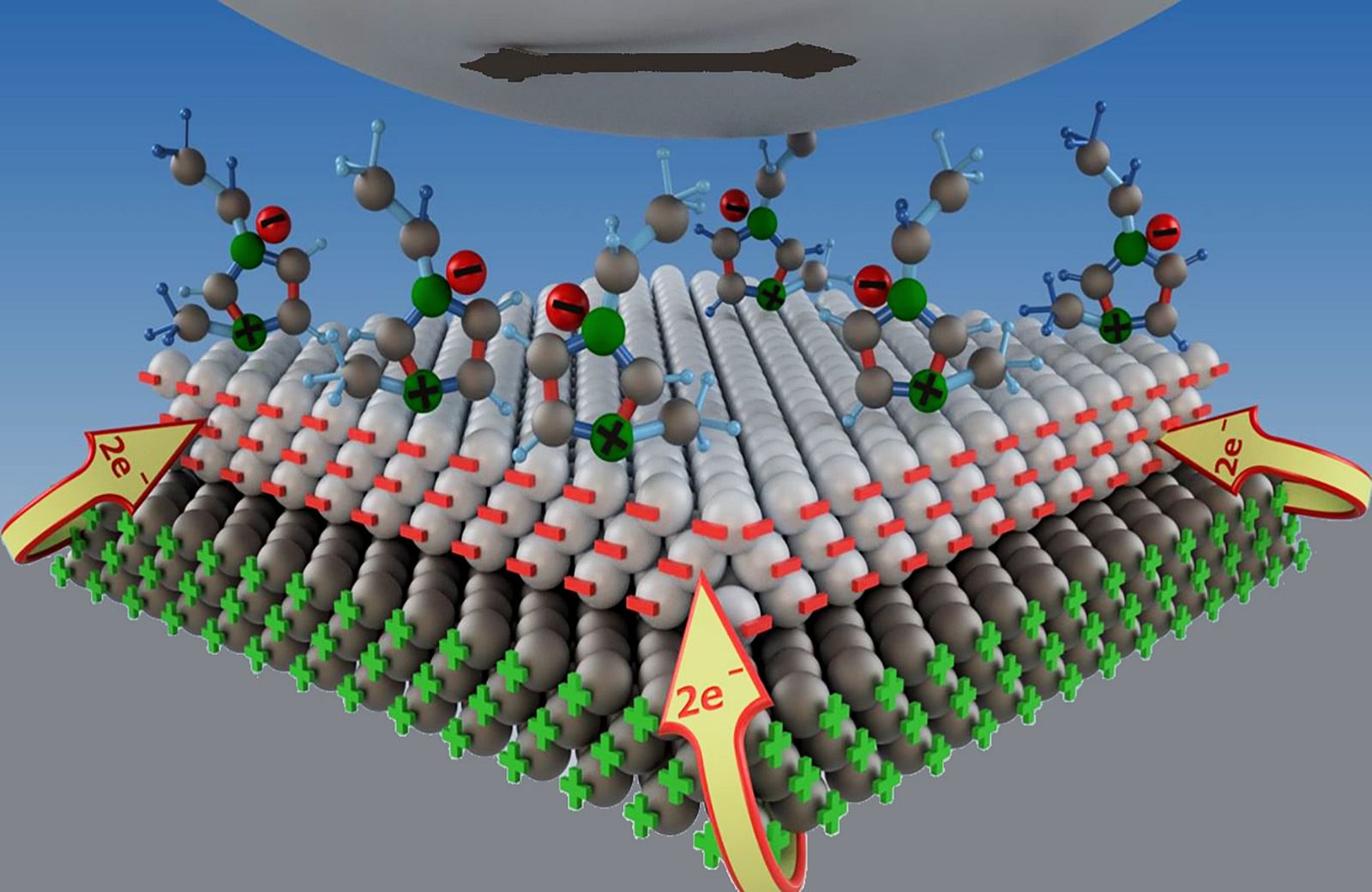A new tech replaces oil with water
Researchers at Fraunhofer develop new method that allows water to be used as a lubricant.
Machine bearings are usually lubricated with various oils, but today large quantities of these oils still do not end up getting disposed properly, and as a result pollute the environment. The Fraunhofer Institute for Mechanics of Materials IWM (Fraunhofer) has developed a method, which it says make it possible to lubricate slide bearings using water in the future, a much more environmentally friendly approach.
Bearings are usually lubricated with mineral oil-based lubricants that helps in preventing wear on the bearing from metal on metal contact. Fraunhofer estimates that in Germany alone, approximately one million tonnes of lubricant are used every year. The manufacture, application and disposal of oil is a burden on the environment.
The institute says introducing water-based lubricants would greatly benefit environmental protection. But until now, the fact that metal parts corrode when they come into contact with water has been a major obstacle. To address this a working group at the Fraunhofer IWM in Freiburg has succeeded in using additives to change water in such a way that it could be used as a lubricant at some point in the future. This meant a double success for Dr Tobias Amann and his colleagues at the Fraunhofer IWM: first, the lubrication achieved is much better, since water is not as viscous as oil. Secondly, corrosion is prevented.

The new in situ tribometer can measure wear and friction values directly on the slide bearing during operation.
The researchers developed the details of their process using a slide bearing, a bearing which resembles a ring that surrounds a rotating steel shaft. The ring is made of several layers structured from the outside to the inside as follows: a sleeve surrounding the bearing, a layer of aluminium and a layer of sintered metal that surrounds the shaft itself. Fraunhofer says the trick is that the inner sintered layer is traversed by a small channel which lets water flow between the rotating shaft and the outer aluminium layer. This direct connection is decisive in the electro-chemical process, based on the fact that an electric voltage arises between a base metal such as aluminium and a more precious metal such as iron, even without having to apply any kind of external electric field.
Turning water into lubricant
Fraunhofer researchers use the electric voltage arising between the aluminium in the slide bearing and the iron in the shaft to turn the water into a lubricant. Dr. Tobias Amann, explained: “We mix what are called ionic liquids into the water. The ionic liquids are fluid salts which contain anions and cations.”
These ions are rearranged in the electric field and then collect on the interior side of the sintered metal ring in such a way that their ends are pointing upward, toward the rotating shaft. This forms a kind of galvanically generated protective layer on which the shaft can glide.
The research team has already demonstrated the viability of the process. Amann and his research team are currently looking for partners in industry with whom they plan to further optimise the ionic liquids.
“One challenge is that the movement of the shaft generates heat which causes the water to evaporate. Now we’re looking for ionic liquid mixtures which inhibit the evaporation,” said the scientist.
More efficient electric motors
The researchers state that the ion-water mixture is better for the environment than oil, and it also helps to make slide bearings even more efficient. “The shaft glides better when it is wetted with water. This reduces energy consumption compared to operations using considerably more viscous oil," said Dr. Amann. In addition, corrosion is avoided. Normally the oxygen in the water reacts with steels containing iron, ultimately resulting in rust. The electric field prevents this from happening.

In the galvanically controlled frictional contact, the ionic liquids collect on the metal surface and improve the tribological friction and wear.
In two projects together with their colleagues at the University of Freiburg, both publicly funded by the Baden-Württemberg Ministry of Economic Affairs, Labour and Housing, the experts at Fraunhofer IWM developed even more than the slide bearing with its electro-chemical internal workings. They also designed a new measuring device, referred to as an in situ tribometer, capable of monitoring metallic wear and friction values directly on the slide bearing during operation. Until now it has only been possible to measure the wear on a bearing by disassembling the bearing before assessing and measuring the surfaces. This is highly time-consuming: “Our new tribometer now makes it possible to measure wear in situ, not only making it easier to develop feasible water-based lubricants, but also to continuously monitor bearings,” Dr. Amann pointed out.
New application of a familiar principle in cathodic corrosion protection
The water lubricant in galvanically coupled slide bearings developed by Fraunhofer IWM is a new application of a long-known principle: active cathodic corrosion protection, which works without additional electricity. This trick prevents rust and corrosion of metals which come into contact with water. What is referred to as a sacrificial anode, a less precious metal, is inserted into the aqueous environment. This anode slowly dissolves, emitting ions into the liquid in the process and creating a small flow of electrons toward the metal to be protected, functioning as a cathode. A negatively charged protective layer then develops on the metal’s surface, preventing rust as well as tribocorrosion. This is because positively charged cations from the ionic liquid or water lubricant collect on this negatively charged surface.
RELATED ARTICLES
Autoliv Plans JV for Advanced Safety Electronics With China’s HSAE
The new joint venture, which is to be located strategically near Shanghai and close to several existing Autoliv sites in...
JLR to Restart Production Over a Month After September Hacking
Manufacturing operations at the Tata Group-owned British luxury car and SUV manufacturer were shut down following a cybe...
BYD UK Sales Jump 880% in September to 11,271 units
Sales record sets the UK apart as the largest international market for BYD outside of China for the first time. The Seal...






 By Autocar Professional Bureau
By Autocar Professional Bureau
 22 Jul 2019
22 Jul 2019
 7699 Views
7699 Views








 Ajit Dalvi
Ajit Dalvi




